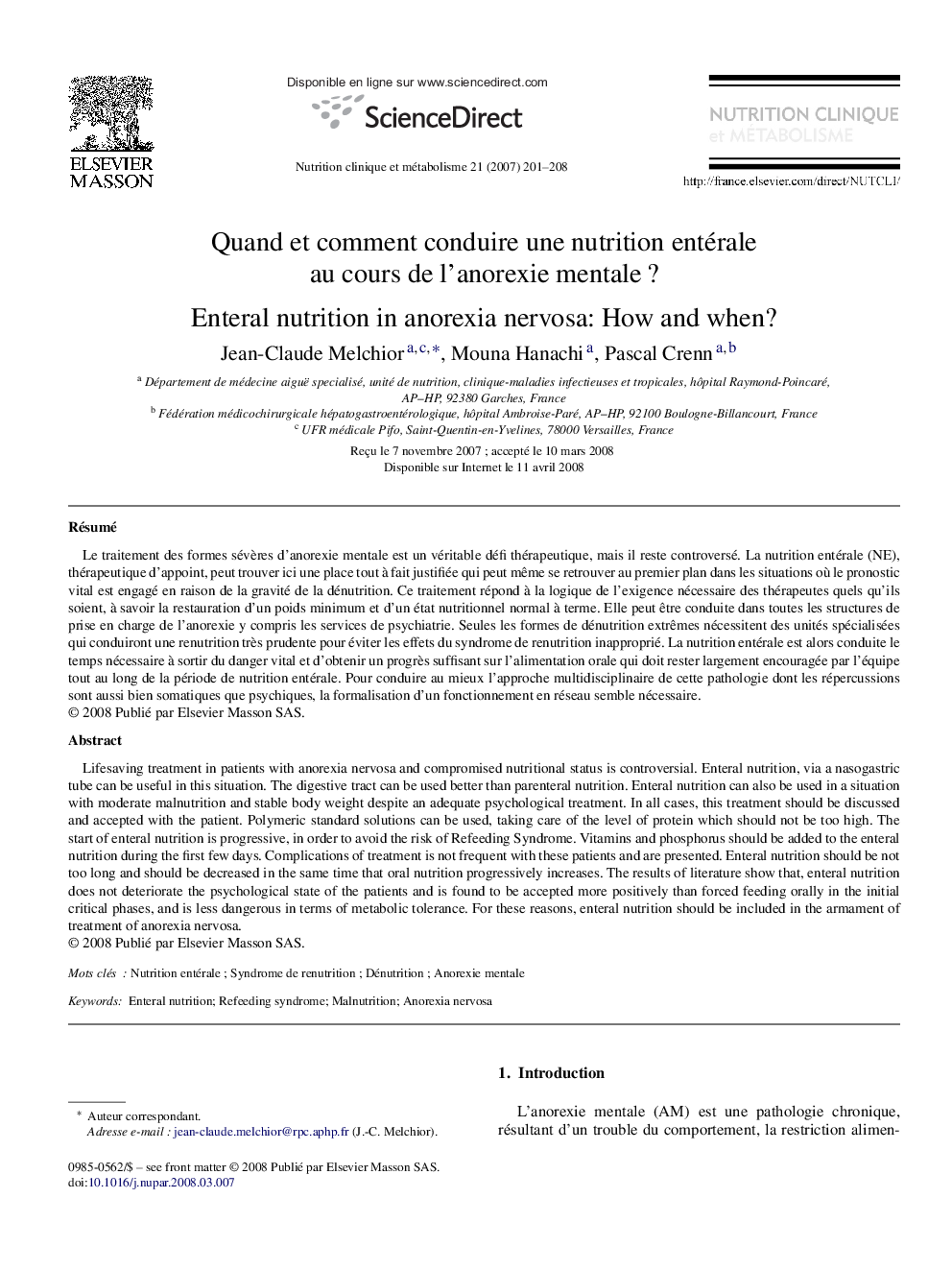| Article ID | Journal | Published Year | Pages | File Type |
|---|---|---|---|---|
| 2692447 | Nutrition Clinique et Métabolisme | 2007 | 8 Pages |
RésuméLe traitement des formes sévères d’anorexie mentale est un véritable défi thérapeutique, mais il reste controversé. La nutrition entérale (NE), thérapeutique d’appoint, peut trouver ici une place tout à fait justifiée qui peut même se retrouver au premier plan dans les situations où le pronostic vital est engagé en raison de la gravité de la dénutrition. Ce traitement répond à la logique de l’exigence nécessaire des thérapeutes quels qu’ils soient, à savoir la restauration d’un poids minimum et d’un état nutritionnel normal à terme. Elle peut être conduite dans toutes les structures de prise en charge de l’anorexie y compris les services de psychiatrie. Seules les formes de dénutrition extrêmes nécessitent des unités spécialisées qui conduiront une renutrition très prudente pour éviter les effets du syndrome de renutrition inapproprié. La nutrition entérale est alors conduite le temps nécessaire à sortir du danger vital et d’obtenir un progrès suffisant sur l’alimentation orale qui doit rester largement encouragée par l’équipe tout au long de la période de nutrition entérale. Pour conduire au mieux l’approche multidisciplinaire de cette pathologie dont les répercussions sont aussi bien somatiques que psychiques, la formalisation d’un fonctionnement en réseau semble nécessaire.
Lifesaving treatment in patients with anorexia nervosa and compromised nutritional status is controversial. Enteral nutrition, via a nasogastric tube can be useful in this situation. The digestive tract can be used better than parenteral nutrition. Enteral nutrition can also be used in a situation with moderate malnutrition and stable body weight despite an adequate psychological treatment. In all cases, this treatment should be discussed and accepted with the patient. Polymeric standard solutions can be used, taking care of the level of protein which should not be too high. The start of enteral nutrition is progressive, in order to avoid the risk of Refeeding Syndrome. Vitamins and phosphorus should be added to the enteral nutrition during the first few days. Complications of treatment is not frequent with these patients and are presented. Enteral nutrition should be not too long and should be decreased in the same time that oral nutrition progressively increases. The results of literature show that, enteral nutrition does not deteriorate the psychological state of the patients and is found to be accepted more positively than forced feeding orally in the initial critical phases, and is less dangerous in terms of metabolic tolerance. For these reasons, enteral nutrition should be included in the armament of treatment of anorexia nervosa.
